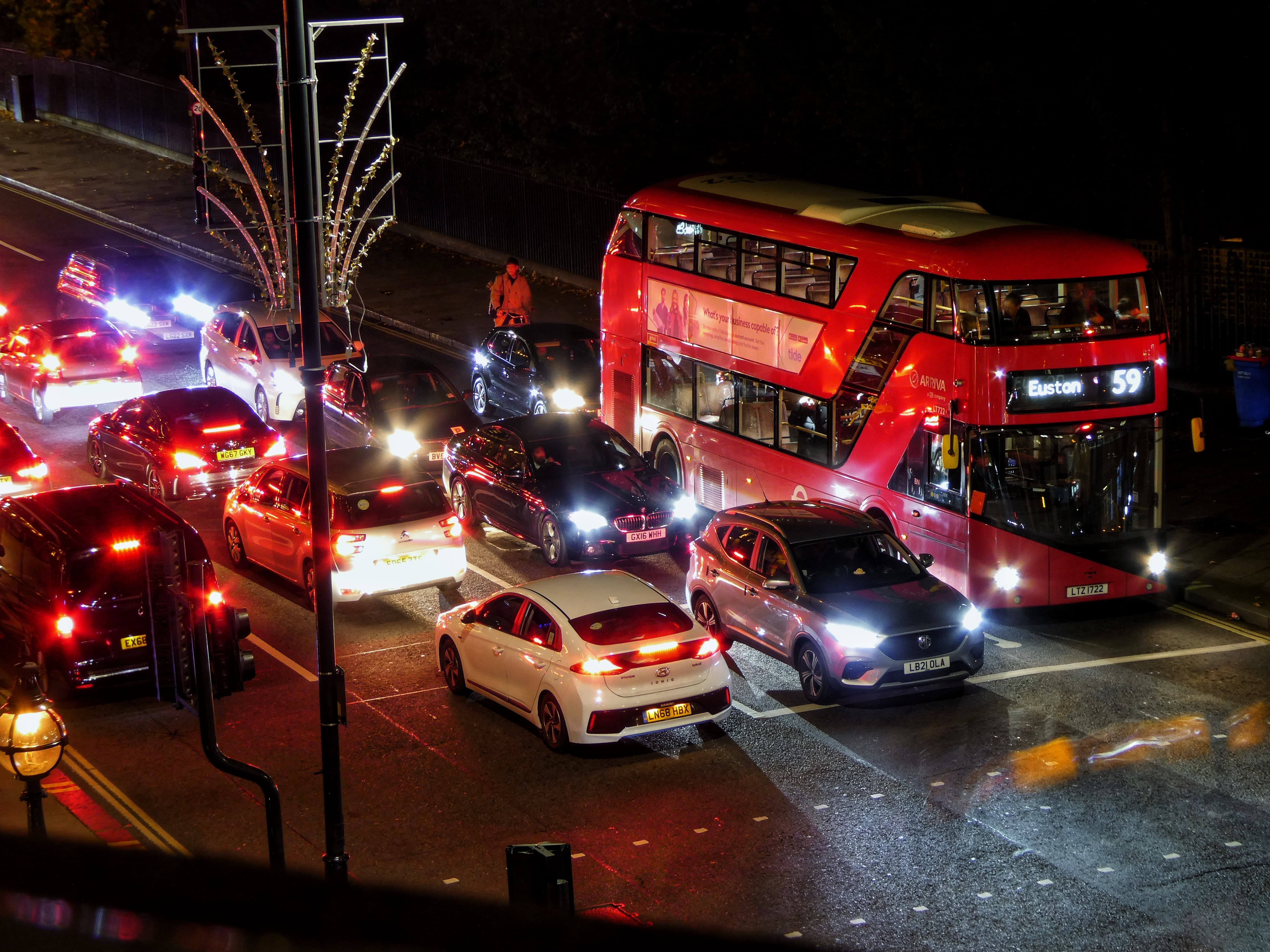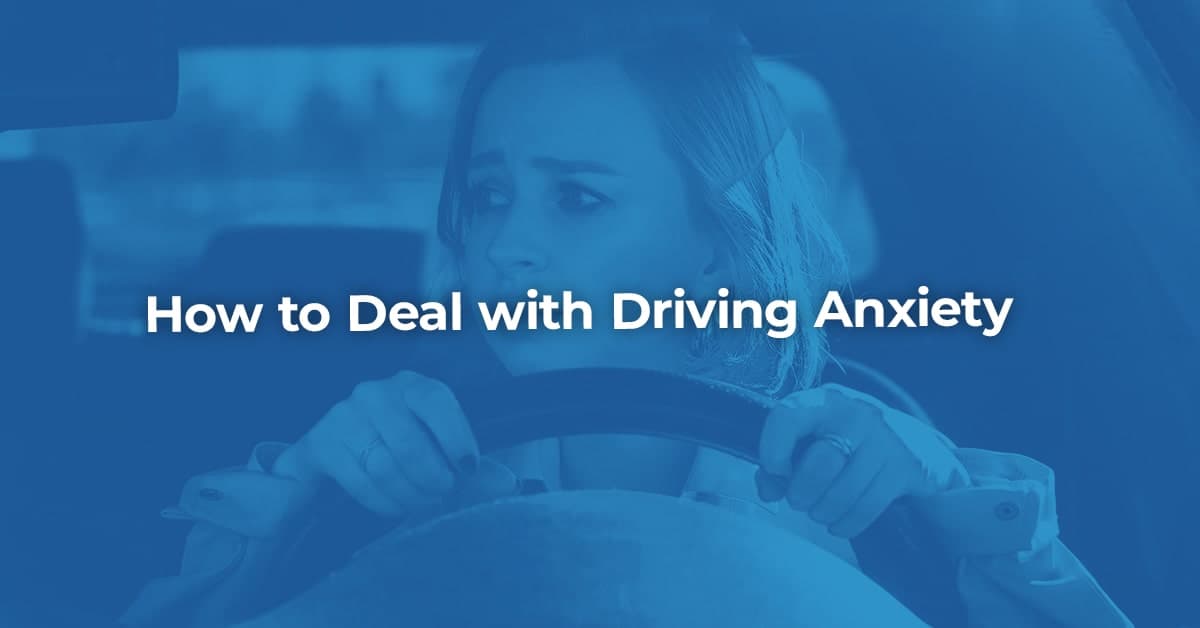Is driving anxiety ruining your life?
Whether you’ve felt this way for a while or driving anxiety has come on all of a sudden, this fear can really interfere with your day-to-day.
Whilst the tips in this article are designed to help you deal with driving anxiety, please seek a professional or medical opinion if you think that this would benefit you.
You could be experiencing general anxiety as well as driving anxiety, which a therapist or doctor will be able to help you with.
Read on and find out what driving anxiety is, what the most common symptoms are, and how you can deal with it a little better.
Page Contents
What Is Driving Anxiety?
If you have a persistent or reoccurring fear of driving, then you will likely experience driving anxiety.
Certain scenarios may make you feel more anxious, such as driving on the motorway or returning to a road where you previously had a negative experience.
You could be afraid to fail an upcoming test.
Or perhaps it has been several years since you last drove, and you feel scared to get behind the wheel again.
How to Get Over Driving Anxiety
If you are hoping to keep driving, then there are a few things you can consider trying to ease your driving anxiety:
- Identify your triggers
- Avoid caffeine
- Eat before you drive
- Deep breathing
- Yoga
- Meditation
- Regular exercise
- Use positive affirmations
- Gradually reintroduce driving
If you feel comfortable doing so, it may be a good idea to have a friend or family member take you for a nice drive to one of your favourite places to help you get over your driving anxiety.
Building up happy memories associated with driving may help you to feel better about getting back into the driver’s seat yourself.
Driving anxiety can be treated with everything from cognitive behavioural therapy (CBT) to professional counselling.
What Causes Fear of Driving?
Whilst there is no one reason why a person may develop a fear of driving, there are some understandable triggers which could have a part to play.

Performance Anxiety
When we drive, we don’t just have our own safety to consider.
If we are transporting other passengers, then we may feel hyper-aware of the pressure to look after them.
It can be difficult to put full confidence in our own abilities. Working on this skill outside of driving may help you to have more faith in your ability behind the wheel.
A Previous Bad Experience
If you have been involved in or witnessed an accident on the road, then it is entirely possible that this is where your driving anxiety stems from.
Whether you have gotten lost on the road, driven during extreme weather conditions, or know someone who has had a bad experience, then you may feel hesitant to get back on the road.
Fear of Accidents
If you are afraid of accidents, then you may be especially keen to avoid driving or being transported in a car.
Fear of Unknown Places
You could experience driving anxiety if you are nervous about navigating places you don't know very well.
You could understandably be concerned about getting lost or encountering a situation you haven't prepared for.
You may wish to stick to roads you are familiar with, and avoid driving during rush hour traffic or in bad weather.
Fear of Loss of Control
If you are worried about losing control whilst driving then you could experience driving anxiety or stress.
Driving Anxiety Symptoms
If you notice any of the following when you think about driving, then you could be experiencing driving anxiety symptoms:
- Shaking
- Nausea
- Dizziness
- Sweating
- Dry mouth
- Confusion
- Rapid breathing
- Heart palpitations
If you think that driving anxiety is impacting your health, then it may be worth booking an appointment with a medical professional.
Given that some of these symptoms overlap with general anxiety symptoms, getting a second opinion from a medical professional or therapist can be validating and can open up other avenues to help you cope with your driving anxiety.
Which Situations Can Lead to Driving Anxiety?
The following situations could cause a person to feel anxious towards driving:
- Learning to drive
- Driving alone
- Driving at night
- Driving in a traffic jam
- Driving in bad weather or snow
- Driving in unfamiliar locations
- Driving beside larger vehicles
You could also be afraid to lose control of your vehicle, but there are techniques you can use to combat driving anxiety.
What Should I Do Before I Set Off?
Before setting off in your car, it can be helpful to take a moment to focus on your breathing.
Taking long and slow breaths can help to reduce your heart rate and make you feel slightly more calm before your journey.
If you are heading somewhere unfamiliar, it can help to plan your route and save the address you are looking for in your sat nav.
Remember, sat nav is helpful but it doesn't always get it right. Keep a map in the car - along with an emergency kit - so that you can prepare for a range of eventualities.
Check the weather before setting off and consider delaying your trip if extreme weather is forecast.
Turn off your phone and put it in the glove box so that you can avoid distractions as you drive.
It may help you to put on a relaxing playlist before setting off - that way you won't have to fiddle with the radio.
Give yourself extra time to reach your destination, and don’t be afraid to pull over in a side road or a service station to take a moment if you feel overwhelmed.
If other drivers try to pressure you into driving faster, you can let them overtake you when it is safe to do so.
Remember to check your mirrors when turning or braking, signal with plenty of time, and leave enough room between your car and the car in front.
When you arrive, take a moment to appreciate what you have just done.
In the excitement, make sure that you remember to check your parking brake is on, your headlights are off, the windows are shut, and the car is properly locked before you exit the vehicle.
You passed your test - you can do this!
Why Do I Have Driving Anxiety All of a Sudden?
Driving anxiety can come on suddenly if you have been involved in an accident recently, or are worried about getting into an accident.
You may have driving anxiety if you feel stressed or anxious even thinking about driving.
For some people, a fear of getting trapped or being uable to escape whilst driving can cause them to stop driving.
How Can I Overcome My Fear of Driving as a New Driver?
If you are particularly nervous about driving in high-speed situations as a new driver, then there could be a solution for you.
As of June 2018, learner drivers can take motorway driving lessons with an approved driving instructor in England, Scotland and Wales.
You won’t be assessed on your motorway driving skills in the driving test, but many learner drivers do find that this helps them develop confidence behind the wheel.
You could also take a course like Pass Plus after you pass your test if you want experience on the road with an approved driving instructor.
If you are an overly cautious driver, then you may wish to take out black box car insurance once you’ve passed your test.
Black box car insurance monitors how you drive and uses this information to assess the risk you pose on the road. The safer you drive, the lower the risk and premiums.
FAQs








No comments yet
Leave a comment